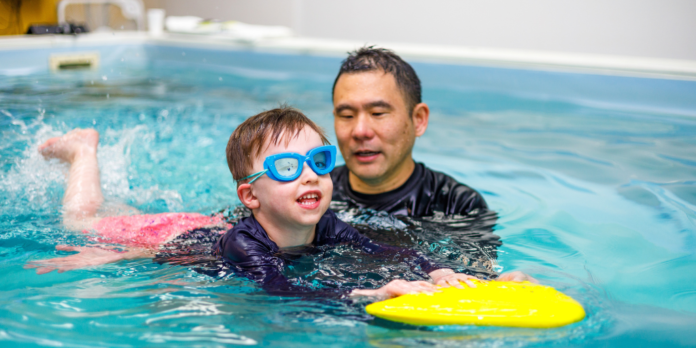In the breathtaking scenery of New Zealand, where the land meets the sea in a dance of stunning landscapes and crystal-clear waters, a profound connection with the ocean is woven into the fabric of Kiwi life. Being an island nation surrounded by the vast expanse of the Pacific Ocean, it’s not just a coincidence that swimming is more than a mere skill; it’s a cherished way of life for Kiwis.
For parents in this aquatic haven, a common question gently ripples through their thoughts: “When is the best time to introduce my child to the world of swimming?”In the upcoming piece, we’ll leisurely wander the coastline of initial swim learning, soaking in the positive outcomes it brings. We’ll dip our toes into the gentle waves of developmental considerations, and, like a trusted guide, we’ll offer some simple advice on when to set sail on your child’s aquatic journey. So, let’s embark on this easygoing exploration, where the waters of knowledge are calm and the path is as clear as the New Zealand sky.
Early Swim Education: A Splash of Benefits
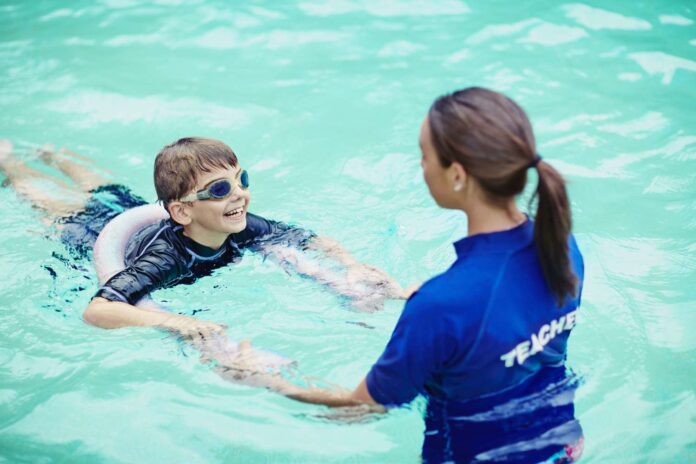
Before delving into the ideal age for swimming lessons, it’s crucial to understand the number of benefits that come with early swim education. Beyond the obvious life-saving skill, swimming enhances physical, mental, and emotional well-being.
- Physically, swimming is an excellent full-body workout that promotes muscle development, flexibility, and cardiovascular health. Additionally, it fosters coordination and balance, laying a foundation for overall physical fitness.
- Mentally, the water provides a unique sensory experience that stimulates cognitive development. Children learn to adapt to a different environment, improving spatial awareness and problem-solving skills. Moreover, the rhythmic nature of swimming has a calming effect, contributing to stress reduction and improved sleep patterns.
- Emotionally, swimming instils a sense of accomplishment and boosts confidence. Mastering swimming strokes and techniques provides children with a tangible achievement, nurturing a positive self-image that extends beyond the pool.
Developmental Considerations: The Building Blocks of Aquatic Confidence
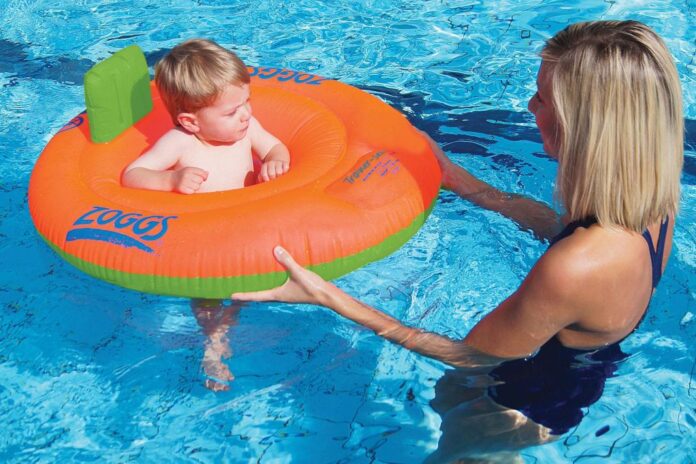
The question of when to start swimming lessons is closely tied to a child’s developmental stage. Infants, toddlers, and older children each have unique needs and capabilities, and tailoring swim education to align with these stages is essential.
Infants (6 months to 2 years):
Infancy is an opportune time to introduce babies to the water. Parent-child water play not only strengthens the parent-child bond but also establishes a positive association with the aquatic environment. Gentle water activities, such as splashing and floating, contribute to sensory development and motor skill enhancement.
Toddlers (2 to 4 years):
Toddlers thrive in a structured swim setting that focuses on water acclimatisation and basic water safety. Classes incorporating songs, games, and play can make learning enjoyable and build confidence. At this age, children are like sponges, absorbing new skills rapidly, making it an ideal time to introduce fundamental swimming techniques.
Preschoolers (4 to 6 years):
Preschoolers are ready for more structured swim lessons, focusing on building stroke techniques and water safety skills. As their coordination improves, they can begin mastering basic strokes like freestyle and backstroke. The emphasis should still be on making learning enjoyable to foster a positive attitude towards swimming.
School-age Children (6 years and older):
Beyond the preschool years, children can participate in more advanced swim lessons in Auckland that include refining stroke techniques, learning survival skills, and building endurance. This age group is also at a developmental stage where they can comprehend and follow more complex instructions, making it an opportune time to reinforce water safety knowledge.
When to Start Swimming Lessons: A Tailored Approach
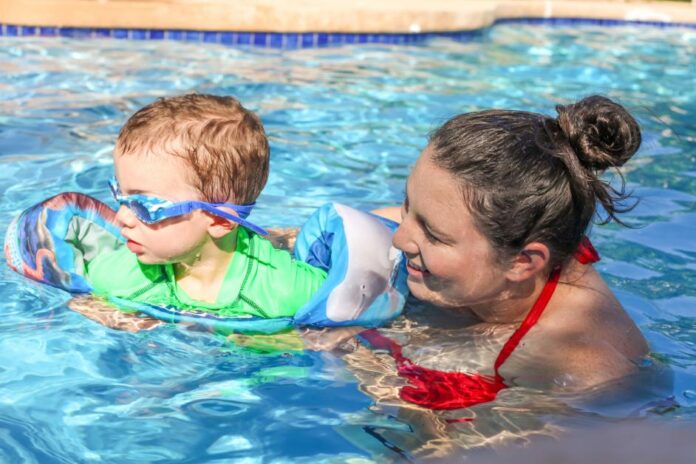
The ideal age to start swimming lessons varies from child to child, and the key is to tailor the approach based on individual readiness. While some children may be ready for structured swim lessons as early as six months, others may benefit more from a gradual introduction to water play.
Signs that Your Child is Ready for Swim Lessons:
Interest and Curiosity:
If your child shows interest in water-related activities and expresses curiosity about swimming, it may be a sign that they are ready for formal swim lessons.
Motor Skills Development:
Children who have developed basic motor skills, such as arm and leg movements, are better equipped for swim lessons. This readiness is often observed in toddlers and preschoolers.
Comfort in Water:
If your child demonstrates comfort in the water, such as being unafraid of water splashing on their face or floating with support, they may be ready for more structured lessons.
Ability to Follow Instructions:
For older children, the ability to follow simple instructions is crucial for a successful swim lesson experience. This includes understanding and executing basic movements and safety guidelines.
Conclusion
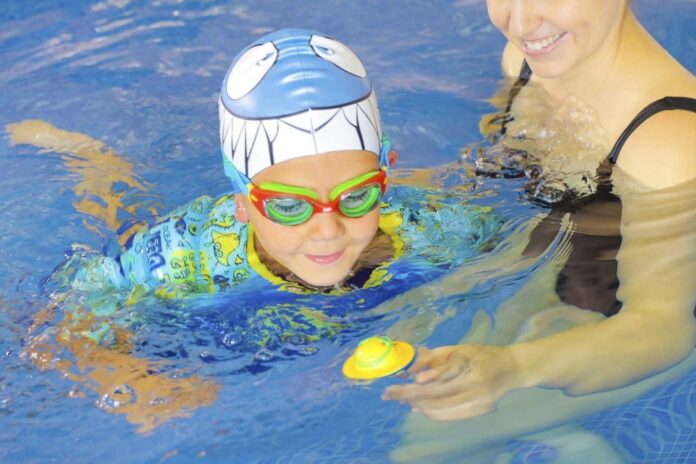
In the picturesque landscapes of New Zealand, surrounded by oceans and lakes, swimming is more than a recreational activity—it’s a life skill deeply ingrained in the Kiwi way of life. Deciding when to start swimming lessons for your child is a personal choice guided by their individual readiness and developmental stage.
Whether introducing infants to the gentle embrace of water or guiding older children through the nuances of advanced strokes, the benefits of early swim education are boundless. The ripple effect of confidence gained in the pool extends far beyond, shaping resilient, water-safe individuals ready to navigate life’s currents.
In the end, the ideal age to start swimming lessons is less about a specific timeframe and more about recognising the signs of readiness in your child. So, listen to the whispers of the waves and the laughter in the pool, and let your child embark on their aquatic journey at a pace that suits them best. After all, in the waters of New Zealand, confidence is a ripple that knows no bounds.

